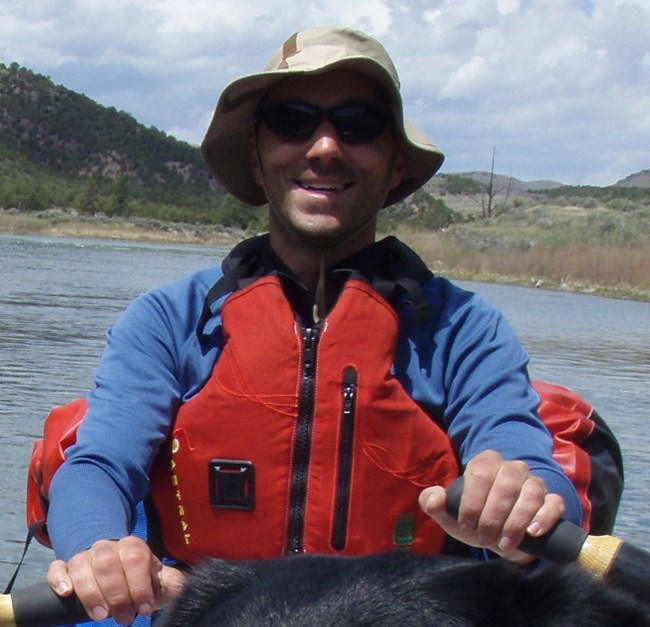Last updated: September 14, 2017
Article
From Heavy Equipment Operator to Project Manager

Courtesy Doug Denk
What experience and education do you have? I have a bachelor of science in Civil Engineering from Northwestern University. After graduating, I was fortunate to land what, at the time, was my dream job as a heavy equipment operator with the National Park Service, Southeast Utah Group. In that position, I learned some of my first lessons in federal land management policy, resource protection, capital asset management and working as part of a larger team dedicated to the mission of competent stewardship of our country’s resources and tax dollars. Since then, my experience has been as an engineer and project manager as a civilian with the U.S. Air Force, with the U.S. Forest Service, and now with the Denver Service Center (DSC), building upon those early lessons from that first “dream job.”
What is a typical day like? A typical day as a DSC project manager involves a lot of paperwork and processes, but also a great amount of collaboration, communication and creative problem solving. The task of successfully guiding a project through the numerous obstacles and opportunities it will face is our overarching challenge, and since those obstacles and opportunities are rarely predefined or wholly expected, a typical day is one that never quite goes as planned and usually offers a surprise or two. Our freedom as project managers and project specialists to use our skills to the best of our ability to pull a project team together, to balance big-picture principles against the reality in the details, and to constantly ensure that resources are working effectively toward a project’s goals is what keeps this job interesting and stimulating.
What career advice would you give to someone who wants to follow a similar path? I would encourage patience and flexibility. No job is perfect, and what was my “dream job” at the start of my career is not my ideal job today (although I do sometimes miss those days on the road grader in Canyonlands National Park!). Don’t be in a hurry to move upward. Try to get experience and hone your technical and soft skills at a field unit, such as a park or forest. Trust me, the connections with the resources, the interaction with the visiting public and the camaraderie with fellow employees tend to grow weaker in positions farther away from the field, but the lessons those experiences provide can last your entire career. Finally, for me, being able to see how my daily tasks support my unit’s or my agency’s guiding mission, when that mission is aligned with my personal values, is very important and makes even the frustrating days more manageable. So, in my opinion, following one’s passion is never bad advice.
What is one of the bigger projects you are working on and what about that project might surprise people? All of my current projects are at the White House and the surrounding President’s Park. While those of us working on projects in those parks like to keep a low profile, I think most people would be surprised at the scope and scale of the work that our office accomplishes not just for the National Park Service but also on behalf of multiple other agencies at those locations. As with any project at any park, the scale, importance and meaning of the resources we represent is often humbling, and I’m proud to play what role I can in our mission.
